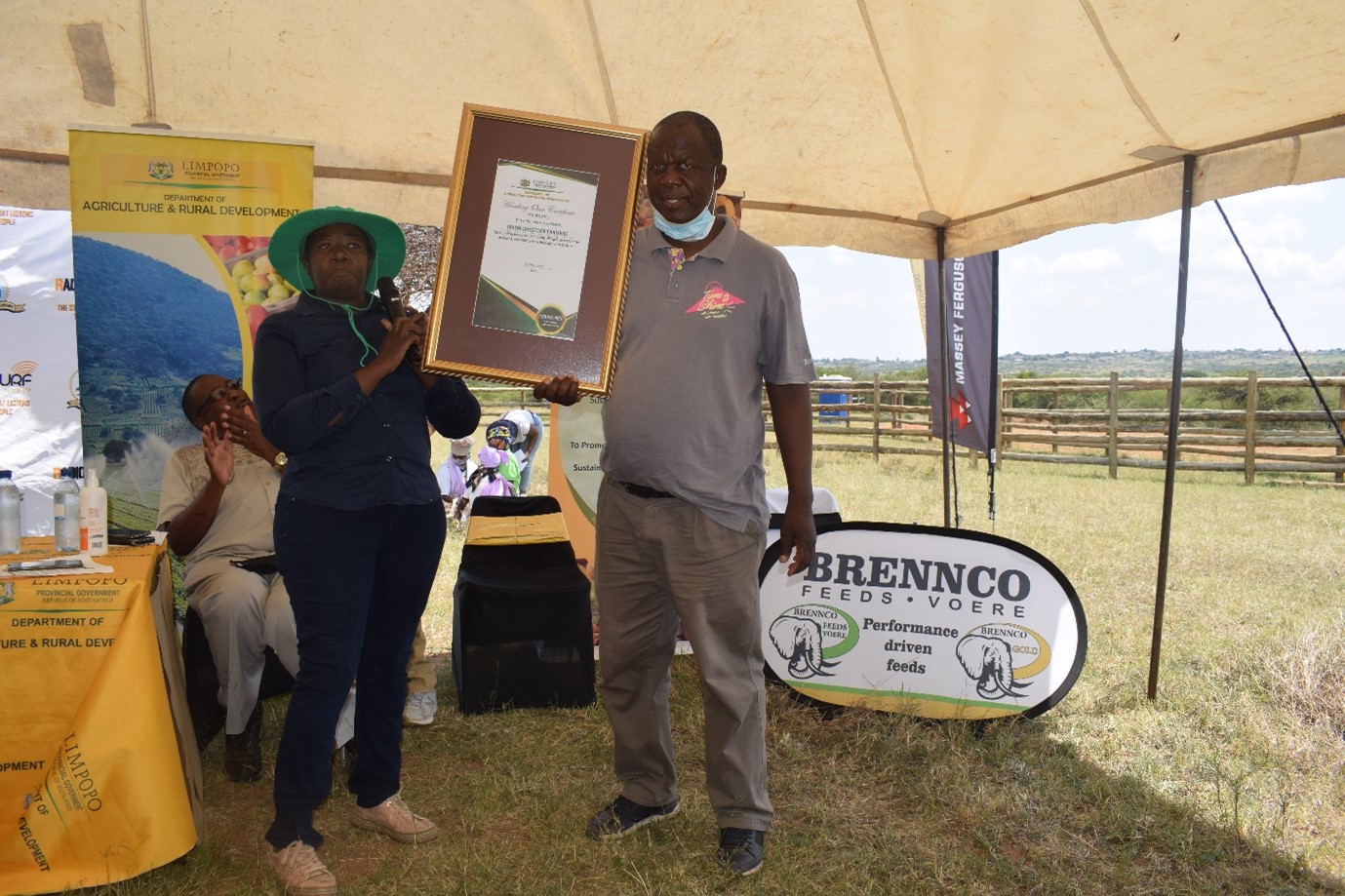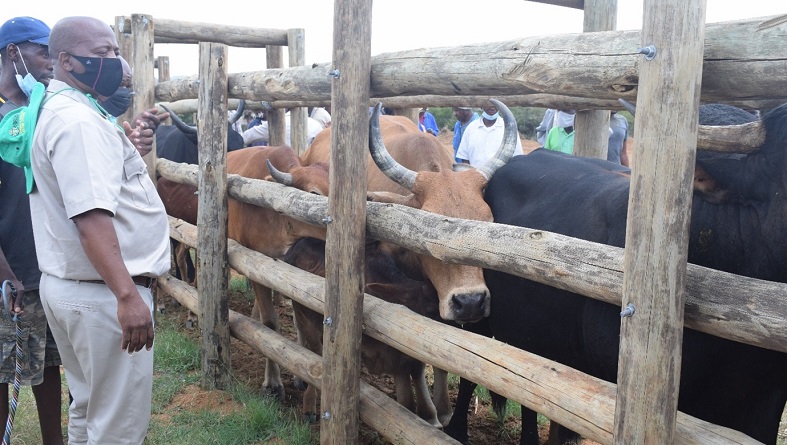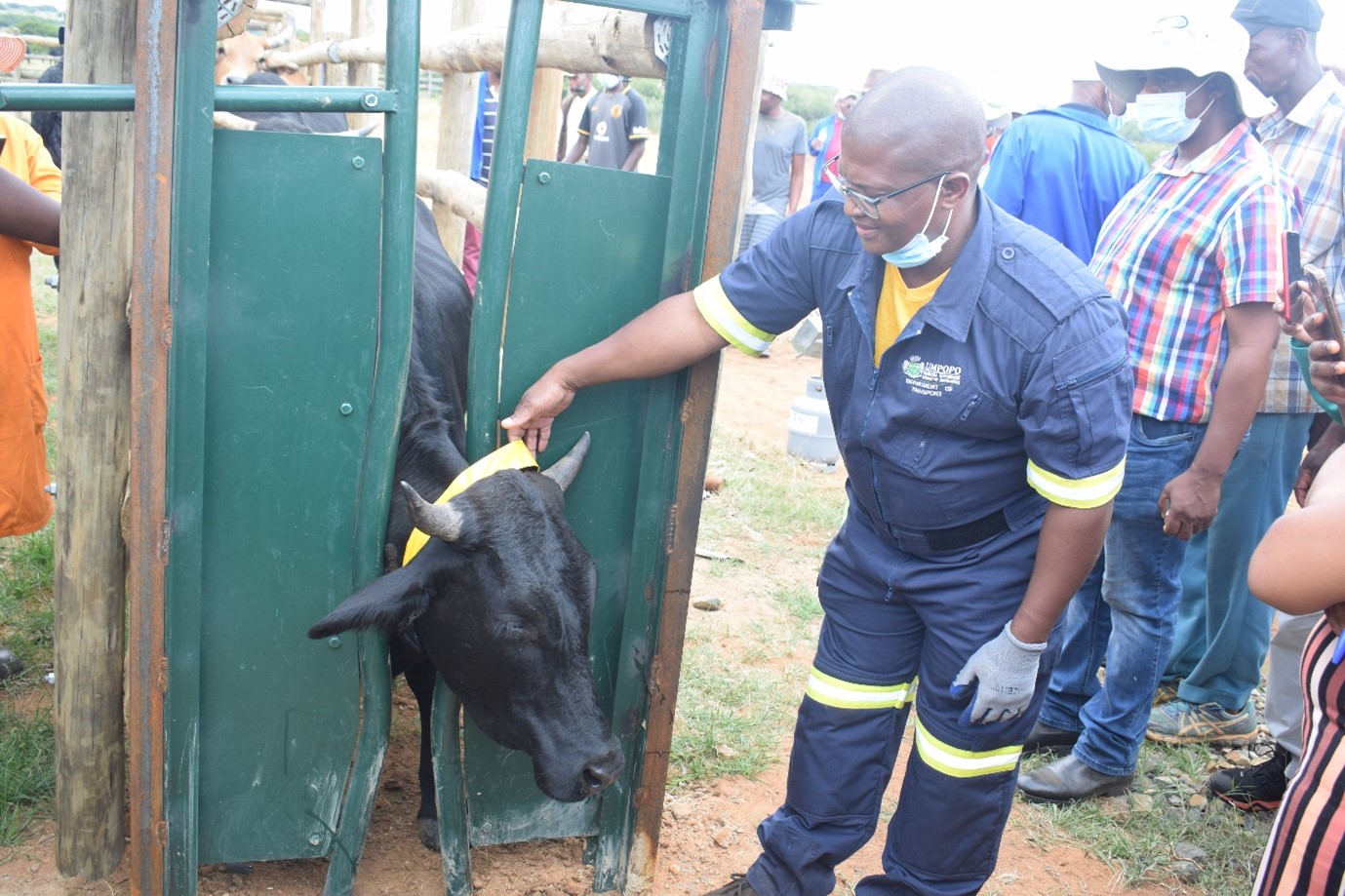By Matsobane Manaka

Limpopo Department of Agriculture and Rural Development (LDARD) has recently handed over a long anticipated crushpen to Mamabolo livestock farmers who operate under the Cooperative of Moshate, Kgwara, Thune and Mamphaka (MKTM) animal farmers.
The facility will assist the 99-member cooperative and the neighbouring livestock farmers with brandmarking and identification of their livestock, routine testing, examination or vaccination, dehorning, castration and serve as a loading platform for cattle easily.
“The construction of the facility is in line with the Revitilisation of Agriculture and Agro-processing Value Chain (RAAVC) plan”, said LDARD official, Cedrick Mojapelo in his presentation.
Mojapelo explained that the RAAVC plan will among others, address the industrialisation of red meat as one of the agricultural sector pillars towards the sustainable rural economy. He said 1500 livestock farmers will undergo a capacity building workshop in five districts. “The training for livestock production improvement will cover animal recording and improvement, information dissemination, general animal husbandry, animal nutrition, veld and rangeland management, animal breeding, livestock disease management and market access, among others,” he said.

Besides management of disease and breeding, a simple feeding instruction can produce a quality, productive and competitive livestock. In his presentation on feeding strategy, Tshifiwa Ravhele said animals need supplements to increase their nutritional (protein, energy, minerals, and vitamins) level. He cautioned that supplementary feed is not a replacement of feed.
Farmers were urged to guard animal feeds against invasive and alien plants. Despite dominating other plants species and to some extent suffocate them, invasive and alien plants take limited available arable land, consume lot of water, and lead to the reduction of livestock production. They affect millions of hectares for agricultural productivity and biodiversity from livestock and game farmers, farmers in eco-tourism to sub-tropical fruit and forestry. To ensure the sustenance of the pasturing capacity in the long term, LDARD Malose Kekana urged farmers to work together in preventing and eradicating the unnecessary encroachment.

Farmers were advised to brandmark their animals against theft. Lastly, farmers have received reflective neck belts and earring for livestock from the Department of Transport and Community Safety to ensure not only visibility on roads especially at night, but to promote road safety.
Farmers were urged to engage the Department of Water & Sanitation in any development that involves water use.
“This is to ensure that they should not violate the water licence requirements,”, said Mulalo Nethengwe.


